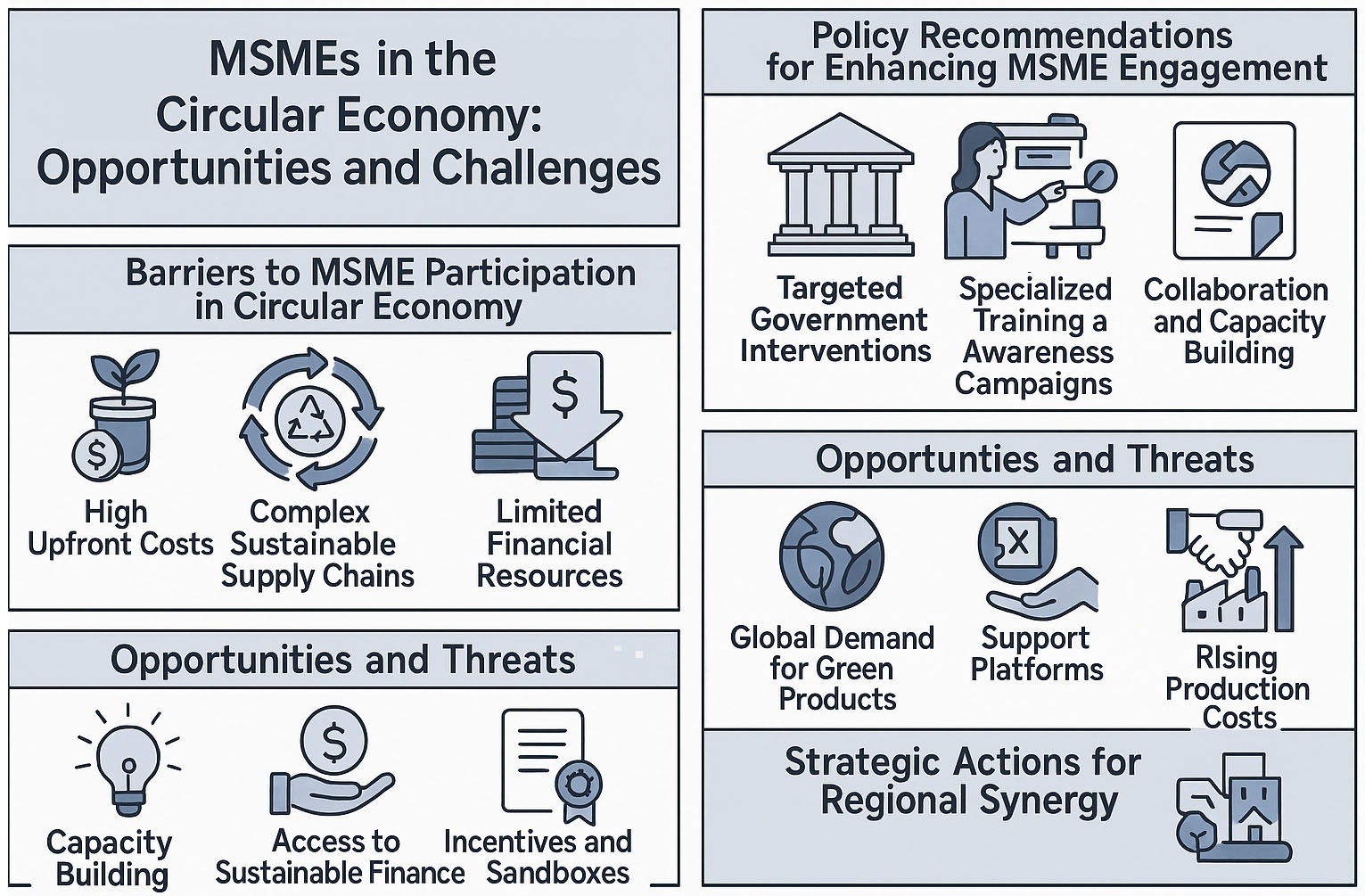
The recent study titled “Study on MSME Participation in the Circular Economy”, published by the ASEAN Secretariat with support from GIZ, provides an in-depth analysis of the role of Micro, Small, and Medium Enterprises (MSMEs) in advancing circular economy (CE) practices within the ASEAN region. This study validates policy recommendations aimed at enhancing MSME engagement in CE, emphasizing the need for targeted interventions and regional collaboration.
Key Insights
1. Barriers to MSME Participation in Circular Economy
- High Upfront Costs: Transitioning to CE practices often requires significant initial investments, which can be prohibitive for MSMEs.
- Complex Sustainable Supply Chains: Navigating and restructuring supply chains to align with CE principles adds complexity and operational challenges.
- Limited Financial Resources: Access to funding remains a significant hurdle, with MSMEs facing difficulties in securing capital for CE initiatives.
- Regulatory Barriers: Challenges such as restricted access to land and funding impede MSME participation in CE.
2. Policy Recommendations for Enhancing MSME Engagement
The study underscores the importance of:
- Targeted Government Interventions: Implementing subsidies, low-interest loans, and improvements in technology and infrastructure to support MSMEs.
- Specialized Training and Awareness Campaigns: Enhancing MSME understanding and capabilities in CE practices.
- Collaboration and Capacity Building: Fostering partnerships and knowledge-sharing platforms to standardize CE definitions and practices.
3. Opportunities and Threats
- Opportunities:
- Global Demand for Green Products: An increasing market for sustainable products presents growth opportunities for MSMEs.
- Support Platforms: Initiatives like ASEAN Access and the ASEAN Circular Economy Stakeholder Platform (ACESP) offer resources and networking opportunities.
- Threats:
- Lack of Established CE Regulations: The absence of clear regulatory frameworks can hinder CE adoption.
- Rising Production Costs: Implementing CE practices may lead to increased operational expenses for MSMEs.
4. Strategic Actions for Regional Synergy
The study advocates for:
- Capacity Building: Standardizing the definition of green or CE MSMEs and establishing environmental benefits of products.
- Access to Sustainable Finance: Facilitating financial mechanisms that support CE initiatives.
- Incentives and Regulatory Sandboxes: Encouraging innovation through supportive policies and experimental regulatory environments.
Conclusion
The transition to a circular economy presents both challenges and opportunities for ASEAN MSMEs. Addressing financial, regulatory, and knowledge barriers through targeted policies and regional collaboration is crucial. By leveraging support platforms and fostering an enabling environment, MSMEs can play a pivotal role in advancing sustainable economic practices in the region.
For a comprehensive understanding, you can access the full study HERE.
Summary by DigitalTrade4.EU
